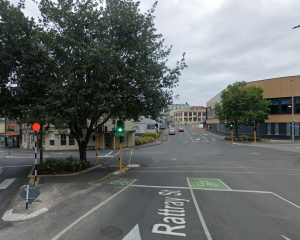The Ministry of Health has rejected a request that it should have a hard upper limit on how much noise it can make preparing the foundations for the new Dunedin Hospital.
However, it has accepted that heavy work should not start on the $1.47billion project before 7.30am.
The ministry has applied for fast-track consent for the first stage and neighbouring businesses and interested parties had until last week to comment on the application, which will be assessed by an independent panel.
The Environmental Protection Authority yesterday released the ministry’s responses to proposed conditions on its consent application suggested by those it consulted.
While many of the conditions were accepted by the ministry and adopted into its application, it expressed reservations about some and rejected others.
The Dunedin City Council requested work not start until 7.30am, and that construction noise be restricted to an upper limit.
The ministry agreed heavy work such as piling should not start too early but said it still wanted to be able to do low noise activities, such as staff briefings, early in the morning.
However, it regarded upper noise limits as too restrictive.
‘‘The noise and vibration management plan approach embodies taking all practicable steps to minimise noise effects and is considered a more robust and comprehensive approach than applying hard limits, because it requires activities to be managed to the lowest levels that can practicably be achieved.’’
The ministry’s noise management firm said a condition that limits should be complied with ‘‘where practicable’’ was used by many councils.
‘‘Removing the ‘where practicable’ qualifier ... may result in council being lobbied to take enforcement action even where everything practicable has been done to mitigate the noise, and/or the effects of the exceedance are inconsequential.’’
The ministry agreed it was appropriate the effects of vibrations from piling and foundation work be effectively managed, but rejected a DCC proposal that the limit for vibrations for the groundworks be lower than those in place for the demolition of the former Cadbury factory.
The ministry rejected many of the conditions proposed by Foodstuffs, operators of the nearby New World supermarket, Centre City Mall and Henry's store.
While supporting the hospital project, Foodstuffs had several concerns about noise, vibration, road works and access.
The ministry felt vibrations would have only a minor effect on Foodstuffs’ premises and that no specific noise screening was needed as traffic noise was already almost as loud as the sound expected to be generated by piling work.
As Foodstuffs had its own car park, it should not be affected by the closure of street parking, the ministry said.
It did agree Foodstuffs needed to be advised of progress on the site and felt its amended management plans allowed that.
The ministry accepted reservations from the NZ Transport Agency concerning design of bollards intended to protect the foundations for the overbridges planned to link the complex’s three buildings.
It also reassured Allied Press, publishers of the Otago Daily Times, that the effect of vibrations on its printing press were expected to be minor at worst.
The ministry agreed with Allied Press that some sort of monitoring should be done, but not a regime which might compromise the timeline for the groundworks to be finished.
The independent panel has a December 13 deadline to deliver its decision, but has given itself the ability to extend that if needed.












